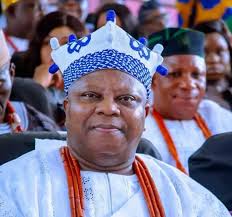
The recent call by HEDA (Human and Environmental Development Agenda) for Governor Adeleke of Osun State to dethrone the Ipetumodu monarch, who was convicted and jailed in the United States for COVID-19 related fraud, has stirred significant public debate. Despite mounting pressure, the governor has yet to take any decisive action to remove the traditional ruler from his throne.
So, why is Governor Adeleke holding back? What factors might explain his reluctance or delay in responding to this urgent demand? Here are some plausible reasons:
1. Respect for Traditional Institutions and Their Autonomy
Traditional rulers in Nigeria hold a revered position as custodians of culture and tradition. Even governors, who wield executive power in their states, often tread carefully when intervening in traditional affairs. There is a general norm of respecting the autonomy of monarchies, except in extreme cases.
Governor Adeleke may be weighing the delicate balance between political authority and cultural respect, choosing not to appear heavy-handed or disrespectful toward an institution that still commands local loyalty.
2. Legal and Procedural Complexities
Dethroning a monarch is not a simple or unilateral process. It typically involves:
Consultations with the kingmakers and traditional council
Following established customs and local government laws
Possible legal battles or challenges that can arise if the monarch contests the dethronement
The governor may be navigating these legal and procedural hurdles before taking any irreversible step, ensuring due process is followed to avoid political backlash or legal setbacks.
3. Political Calculations and Local Power Dynamics
Traditional rulers often have deep-rooted political connections and influence within their communities and beyond. The monarch in question may have supporters or allies within the local political landscape, making the governor’s decision politically sensitive.
Governor Adeleke might be weighing the potential fallout, including unrest or loss of support from key stakeholders, before moving to dethrone the monarch. Political leaders frequently balance governance decisions with the risk of destabilizing alliances.
4. Lack of Direct Jurisdiction Over Traditional Titles
Although state governors have influence over traditional affairs, the powers to dethrone monarchs sometimes lie with local councils or federal structures depending on the state’s laws. Governor Adeleke might be constrained by constitutional or statutory limits, making immediate action impossible without involving other bodies.
In some cases, traditional councils or state Houses of Assembly must initiate the process, and the governor acts based on their recommendations.
5. Possible Pending Investigations or Internal Deliberations
Governor Adeleke’s administration may still be conducting investigations or gathering full details of the monarch’s case and its implications locally before making a final decision.
This approach could reflect an effort to ensure fairness, verify facts, and consider the wider impact on the community, especially as the conviction happened abroad and the monarch may claim innocence or appeal.
6. Fear of Setting a Precedent
Removing a monarch convicted abroad for criminal activity could set a precedent for how traditional rulers’ misconduct is handled in the future. Governor Adeleke might be cautious about:
Opening the door to increased political interference in traditional institutions
Facing demands to remove other rulers accused of various crimes
Sparking a wave of instability across other communities




